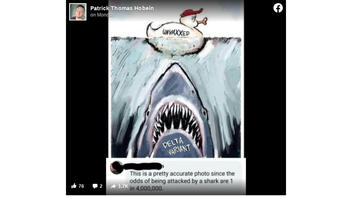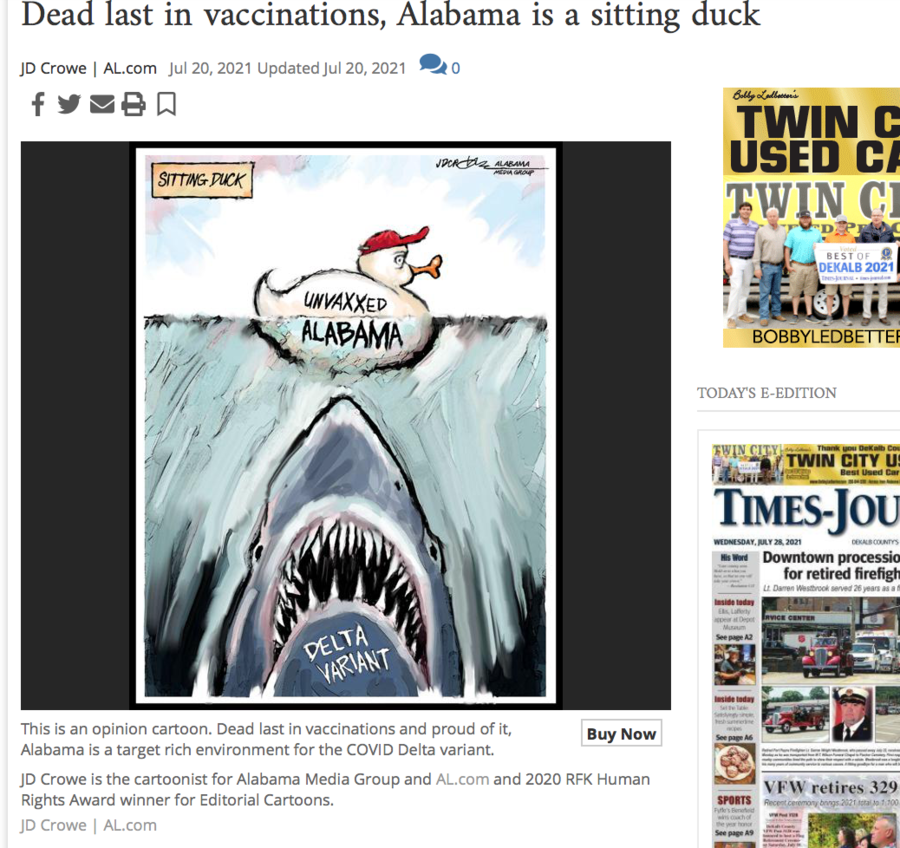
Is it valid to compare the odds of a shark attack to the odds of contracting the delta variant of the COVID-19 virus? No, that's not true: One noted shark expert says a person is 300,000 times more likely to get COVID via the delta variant than to be attacked by a shark.
The comparison claim appeared in a July 26, 2021, Facebook post (archived here). Underneath a cartoon image of a shark labelled "DELTA VARIANT," preparing to attack a duck labelled "UNVAXXED ALABAMA," is the caption:
This is a pretty accurate photo since the odds of being attacked by a shark are 1 in 4,000,000.
This is what the post looked like on Facebook on July 28, 2021:
(Source: Facebook screenshot taken on Thu Jul 29 21:42:04 2021 UTC)
The original message of the political cartoon used in this meme was that people resisting vaccination for COVID-19 are "sitting ducks" against the delta variant.
Cartoonist J.D. Crowe for the Alabama Media Group put the caption "sitting duck" in the top left corner of the image, but the meme maker cropped it out.
As of July 29, 2021, the Centers for Disease Control and Prevention (CDC) reported 86,058 confirmed new COVID-19 cases and 397 new deaths.
Lead Stories has previously reported that the delta variant of the COVID-19 virus is not "fake news." The delta variant currently makes up 50% of U.S. COVID cases, and the unvaccinated are the most susceptible to contracting the delta variant.
Lead Stories reached out to the Florida Program for Shark Research via email on July 28, 2021, about the claim that the odds of being attacked by a shark is "1 in 4,000,000." Gavin Naylor, a shark biologist and director of the organization, responded:
This is incorrect. Every year there are about 80 unprovoked shark bites recorded worldwide. For comparison, there were about 30 million cases of Covid-19 in India alone (the source of the Delta variant). I chose the contrast with India because the population (at that time) was largely unvaccinated and the predominant variant in that population was the delta variant.
So the chance of catching covid-19 from the delta variant is roughly 300,000 times more likely than being bitten by a shark.
Live tracking of the COVID-19 virus infection rates in the U.S. can also be found here.



















